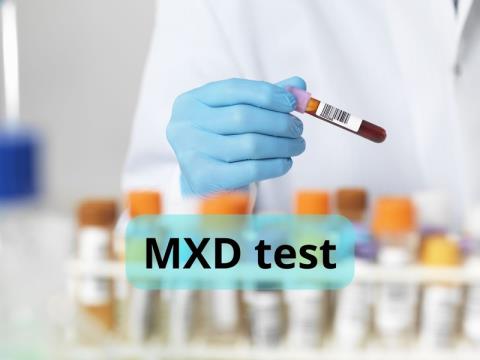Currently, diseases related to the gastrointestinal tract are increasingly common, in which the pathology of the colon is very dangerous. In the most severe cases, the entire rectum and pelvis must be removed, a procedure known as the Miles surgery.
So what exactly is Miles surgery, in which cases are indicated for surgery, please follow the article below of SignsSymptomsList.
What is Miles Surgery?
The Miles surgery is a surgical removal of the entire rectum and pelvis through the abdomen and perineum. This is one of the effective and safe treatment methods for patients.
During colorectal surgery, the patient is under general anesthesia. There are two surgical methods: open surgery and laparoscopic surgery. Depending on the patient's condition and diagnosis, the doctor will make an appropriate choice.
- Open colorectal surgery: The doctor will make a long incision in the abdomen and then remove the entire diseased intestine.
- Laparoscopic colectomy: The doctor can make 2-3 small incisions on the abdomen, then use a special scope and specialized tools to remove the entire large intestine. Usually, an additional short incision is made to remove the excised bowel from the abdomen.
Laparoscopic Miles surgery is a new, popular and fast procedure. Advantages of this method include:
- Patients recover quickly after surgery, the hospital stay is short.
- Less pain after surgery.
- Quickly return to normal activities.
- Leaves a small scar.
Miles surgery is a safe treatment
Indicated cases of Miles . surgery
Colonectomy is indicated for the treatment of conditions such as:
- Colorectal cancer.
- Diverticulosis (small pouches) in the colon wall.
- Inflammatory bowel disease such as: Colitis, Crohn's disease.
- Large bowel obstruction.
- Traumatic bowel damage.
- Precancerous polyps, especially in people with hereditary polyposis syndrome.
- Large intestine perforation.
- Large bowel bleeding.
Colon cancer is usually treated with Miles . surgery
Especially for colon cancer, the goal of surgery is to remove all of the cancer. If you have a precancerous condition, this surgery will help stop the cancer from progressing. If people have surgery for other conditions, this approach will help reduce disease and improve symptoms.
During a colectomy, the doctor will remove the diseased part of the intestine and sew the two ends of the healthy intestine together. If the suture cannot be sutured due to the location and extent of the lesion, the surgeon will do a colostomy. The colostomy is only used temporarily so that the colon has time to recover, after a while, it will be operated again to close the colostomy.
Preparing for Miles Surgery
Before the surgery, the patient must have a pre-anesthesia examination, blood tests and a general physical examination. Depending on the age and condition of the disease, the doctor will make an indication for surgery or not to ensure the best effect for the patient.
Everyone must bathe the night before the surgery and the morning of the surgery with Betadine antiseptic solution. Because the colon contains many bacteria and waste products, it is easy to cause infection if they enter the abdomen during surgery. So bathing is essential to prevent the risk of infection.
Before surgery, patients may also be given oral antibiotics and maximal colonic cleansing to reduce the risk of infection.
2-3 days before surgery, the patient needs to eat soft, liquid foods that are easy to digest such as porridge, soup or milk... Sometimes, the patient can only drink water such as juice, nutritional soup. ..All patients must fast completely 24 hours before surgery.
Before the surgery, the patient will be given laxatives , admitted to the hospital and given fluids to avoid dehydration, electrolytes when diarrhea caused by taking this medicine. If the patient does not follow the above regimens, it is necessary to immediately notify the medical staff and postpone the surgery.
Complications after surgery
Like other types of surgery, colorectal surgery also carries many risks of postoperative complications.
Some of the surgical complications of this surgery include:
- Injury to nearby structures and organs.
- Unable to stop bleeding.
- Abdominal bleeding.
- Infection.
- Flush mouth connection.
- Abdominal abscess.
- Peritonitis .
- Hernia at the old incision.
- Narrow connecting mouth.
- Intestinal obstruction due to intestinal adhesions, usually occurs in patients with a history of previous bowel surgery.
In addition, there are some complications that require surgical intervention.
After surgery, the patient may have a wound infection
How long does it take to recover from Miles surgery?
After colorectal surgery, the patient will be transferred to the postoperative care unit and the nurses will monitor the situation until the patient is out of anesthesia. If vital signs are stable and the patient is awake, he will be transferred to a specialist for further monitoring.
One day after surgery, most of the patients were able to stand up and walk. Patients need to get up and move as soon as possible to stimulate bowel movements and help circulation easily.
The postoperative patient was given nutrition by intravenous line until he could eat and drink normally. Most of the 4-5 patients can eat light foods after surgery.
During those few days, the doctor will prescribe a pain reliever for the patient. People should inform their health care provider if the pain medication they are taking is not effective enough for another medication to be prescribed. Antibiotics can also be used after surgery to fight inflammation, but depending on the incision and the patient's condition.
After 1 to 2 weeks of observation, the patient can be discharged from the hospital. Normally, patients can return to their normal activities 1-3 weeks after surgery. However, it will take a long time for the health to fully recover. Therefore, people need to avoid vigorous exercise, exercise gently, and follow a light, healthy diet. Recovery time depends a lot on how people take care of them.
Should eat soft foods like porridge for a quick recovery
Thus, Miles surgery is a very effective and safe method for patients. After surgery, everyone should pay attention to how to take care and exercise so that the body can recover as quickly as possible. I hope this article has brought you a lot of useful knowledge. Wish you all good health and don't forget to follow other articles of SignsSymptomsList to update your knowledge.








